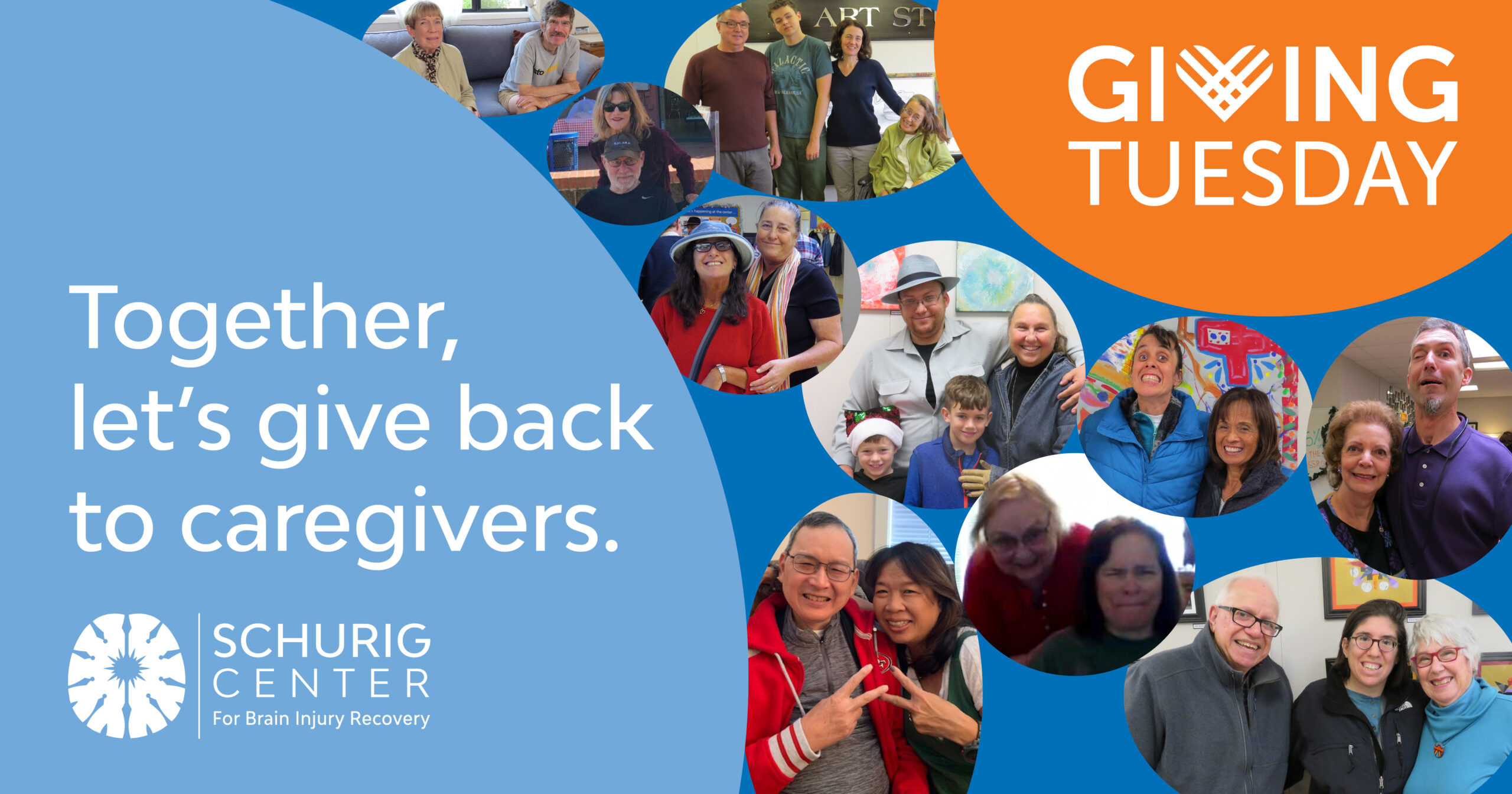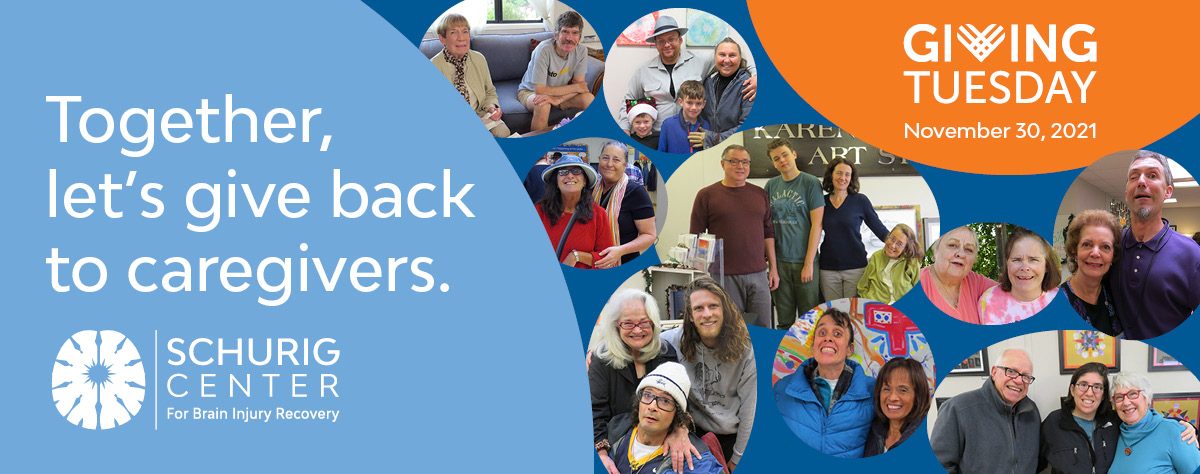Giving Tuesday is November 29, 2022
On this global day of giving, join us in celebrating the unsung heroes who give every day… FAMILY CAREGIVERS
Giving Tuesday inspires millions of people across the globe to give and make positive change in our communities. This year, Schurig Center would like to honor the caregivers who keep our families and communities strong, each and every day.
When someone experiences a brain injury, it doesn’t just happen to them. It affects their entire family. At Schurig Center, we see first-hand the daily commitment, time, and support family caregivers provide for their loved one living with a brain injury. This care is tirelessly given while they also balance daily work, financial, and family responsibilities. Please join us in thanking and giving back to these heroes by making a donation or fundraising for Schurig Center on Giving Tuesday.
Help us raise $10,000 in 24 hours on November 29 for Schurig Center’s supportive services for brain injury family caregivers.
Your generosity will help provide family members and caregivers with support groups, respite, consultation and guidance, resource referral assistance, brain injury education, and a supportive partner who understands the unique challenges of life after brain injury.
Ways to Support Caregivers on #GivingTuesday
- Donate online now here to lock in your gift.
- Fundraise in honor of your caregiver. Go to Schurig Center’s #GivingTuesday donation page here and click “Fundraise” to start your team. Or, start a fundraiser on Facebook.
- Mail a donation check payable to “Schurig Center” to 1132 Magnolia Avenue, Larkspur, CA 94939
- Make a donation by phone with a credit card (415) 461-6771
- Share this message with your friends and family and encourage them to join the movement to make a difference on November 30 Giving Tuesday.





